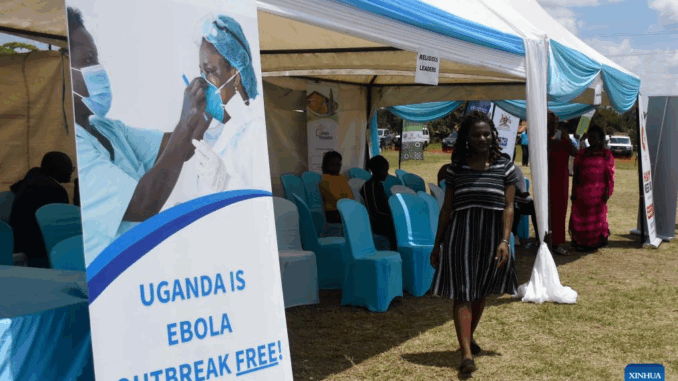
Uganda’s health ministry has officially declared an end to the country’s Ebola outbreak following 42 consecutive days without a new case of the disease, in line with World Health Organization (WHO) protocols for determining when an outbreak is contained.
“During this outbreak, 14 cases, 12 confirmed and two not confirmed through laboratory tests [probable], were reported. Four deaths, two confirmed and two probable, occurred. Ten people recovered from the infection,” the WHO stated.
The outbreak involved the Sudan strain of the virus, which currently has no licensed vaccine. However, Ugandan authorities authorized a clinical trial for a vaccine under development, which was administered to healthcare workers and contacts of confirmed cases.
Health officials first detected the outbreak in the capital Kampala after the death of a male nurse. The response involved rapid containment measures, contact tracing, and isolation of suspected cases to prevent wider transmission.
This marks the ninth time Uganda has successfully contained an Ebola outbreak. The country’s experience in managing viral hemorrhagic fevers has enabled authorities to develop effective response protocols that typically bring outbreaks under control quickly.
Uganda’s tropical forests serve as natural reservoirs for the Ebola virus, making periodic outbreaks relatively common. The country recorded its first Ebola outbreak in 2000 and has since developed significant expertise in managing the disease.
Ebola is transmitted through direct contact with bodily fluids of infected people and typically causes severe fever, bleeding, and often death. While this outbreak was relatively contained, Ebola remains a significant public health concern across parts of Africa.
The deadliest Ebola epidemic on record devastated West Africa between 2013 and 2016, claiming more than 11,300 lives across several countries. By comparison, Uganda’s rapid response to this latest outbreak demonstrates the importance of early detection and coordinated public health measures in preventing similar catastrophic outcomes.
